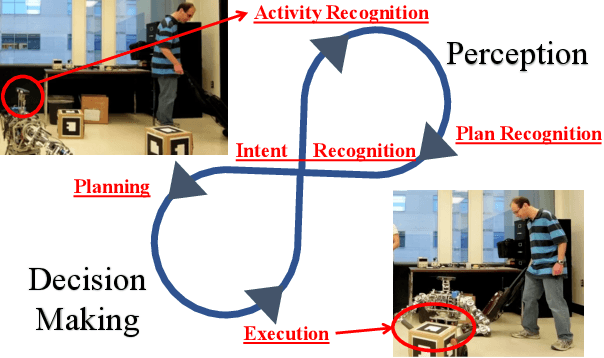Roman Ganchin
Responsive Planning and Recognition for Closed-Loop Interaction
Sep 13, 2019

Abstract:Many intelligent systems currently interact with others using at least one of fixed communication inputs or preset responses, resulting in rigid interaction experiences and extensive efforts developing a variety of scenarios for the system. Fixed inputs limit the natural behavior of the user in order to effectively communicate, and preset responses prevent the system from adapting to the current situation unless it was specifically implemented. Closed-loop interaction instead focuses on dynamic responses that account for what the user is currently doing based on interpretations of their perceived activity. Agents employing closed-loop interaction can also monitor their interactions to ensure that the user responds as expected. We introduce a closed-loop interactive agent framework that integrates planning and recognition to predict what the user is trying to accomplish and autonomously decide on actions to take in response to these predictions. Based on a recent demonstration of such an assistive interactive agent in a turn-based simulated game, we also discuss new research challenges that are not present in the areas of artificial intelligence planning or recognition alone.
 Add to Chrome
Add to Chrome Add to Firefox
Add to Firefox Add to Edge
Add to Edge